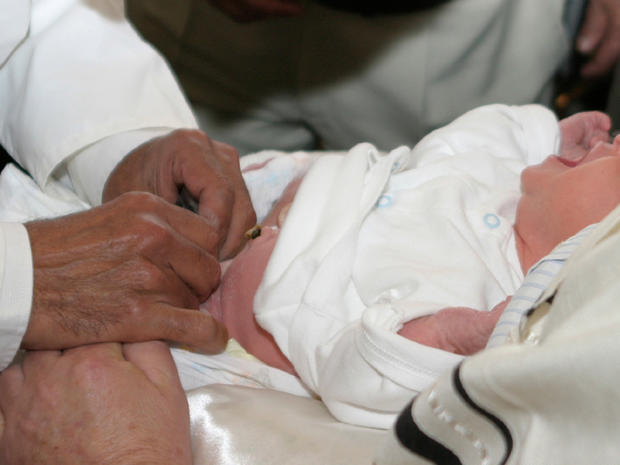German doctors asked to cease circumcisions until court ruling clarified
(CBS/AP) The German government sought to reassure Jewish and Muslim parents Friday that they will continue to be able to circumcise their sons according to religious tradition, despite a local court's ruling that the practice amounts to bodily harm.
Israeli parliament slams German circumcision ban
German court rules circumcision goes against "fundamental right of the child to bodily integrity"
Muslim and Jewish leaders had protested the Cologne court decision in the case of a 4-year-old boy who suffered medical complications after the procedure. The head of the German Medical Association recommended this week that doctors cease performing circumcisions for religious reasons until the law can be clarified.
"We want Jewish, we want Muslim religious life in Germany," said German government spokesman Steffen Seibert. "Circumcision carried out responsibly must be possible in this country without legal punishment," he told reporters in Berlin.
Officials said the government was examining various legal options and seeking a quick solution to resolve the issue. Jewish tradition requires that boys be circumcised eight days after birth.
Germany is sensitive to criticism about its treatment of religious communities due to the country's history of persecuting Jews that reached a climax during Adolf Hitler's Third Reich.
The regional court in Cologne said in June that circumcision went against the "fundamental right of the child to bodily integrity outweighed the fundamental rights of the parents." The court added that religious freedom would not be curtailed because the child would be able to choose later whether he wanted to have a circumcision. If the parents decided for the boy, the court said, it changed the body of the child "irreparably and permanently" and went against the child's rights to choose his religious beliefs.
The American Academy of Pediatrics leaves the decision of circumcision up to the parents, and says in its position statement that the procedure may reduce risk for bladder infections and HIV/AIDS, but referenced anecdotal evidence of decreased sensation and a risk for infection from the procedure.
